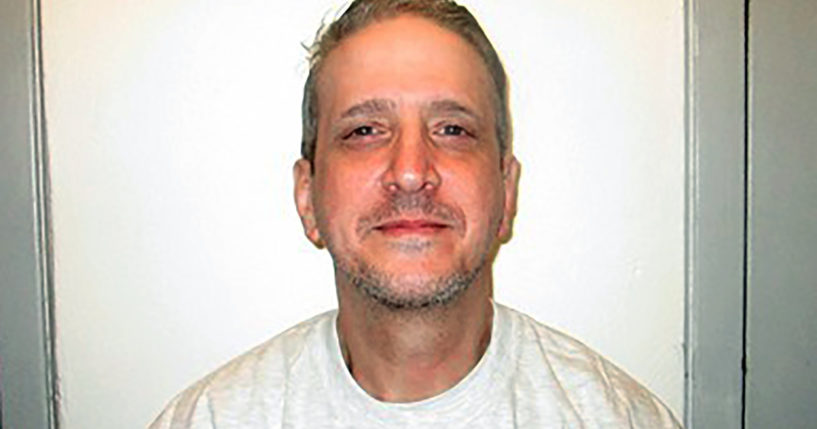
SCOTUS Will Hear Death Row Inmate's Case
The Supreme Court on Monday said it will hear an appeal from Oklahoma death row inmate Richard Glossip, who has steadfastly maintained his innocence and averted multiple attempts by the state to execute him.
Glossip was sentenced in a 1997 murder-for-hire of the owner of the motel where he worked.
The case won’t be argued until the fall.
Glossip now has the support of the state’s Republican attorney general, Gentner Drummond, who says Glossip’s life should be spared because he did not get a fair trial.
The Supreme Court blocked the latest effort to execute Glossip in early May.
Despite Drummond’s doubts about the trial, an Oklahoma appeals court upheld Glossip’s conviction, and the state’s pardon and parole board deadlocked in a vote to grant him clemency.
But Drummond also has said he does not believe Glossip is innocent of the murder-for-hire killing of his former boss, Barry Van Treese, in 1997.
Another man, Justin Sneed, admitted robbing and killing Van Treese after Glossip promised to pay him $10,000. Sneed received a life sentence in exchange for his testimony and was the key witness against Glossip.
Two separate independent investigations have revealed problems with the prosecution’s case.
Drummond said Sneed lied on the witness stand about his psychiatric condition and his reason for taking the mood-stabilizing drug lithium and that prosecutors knew Sneed was lying.
Also, evidence was destroyed, Drummond said.
Some Republican state lawmakers who support the death penalty have joined the growing chorus of Glossip supporters who are seeking to overturn his conviction.
Glossip’s case has been to the Supreme Court before. He was given a reprieve in 2015, although the court later ruled 5-4 against him in a case involving the drugs used in lethal executions.
Glossip has been just hours away from being executed three times. His last scheduled execution, in September 2015, was halted just moments before he was to be led to the death chamber when prison officials realized they had received the wrong lethal drug. That mix-up helped prompt a nearly seven-year moratorium on the death penalty in Oklahoma.
Glossip’s case attracted international attention after leftist actress Susan Sarandon — who won an Academy Award for her portrayal of death penalty opponent Sister Helen Prejean in the 1995 movie “Dead Man Walking” — took up his cause in real life. Prejean herself has served as Glossip’s spiritual adviser and frequently visited him in prison. His case also was featured in the 2017 documentary film “Killing Richard Glossip.”
It’s exceedingly rare for a prosecutor to argue against executing a death row inmate. In a similar situation to Glossip’s a year ago, the justices ordered a Texas appeals court to look again at the case of a death row inmate who also had the backing of prosecutors. The inmate, Areli Escobar, had been convicted and sentenced to death based on forensic evidence that a judge later found to be flawed.
But the Texas Court of Criminal Appeals overturned the judge’s order for a new trial, even though the newly elected prosecutor in Travis County, Texas, was no longer standing behind the conviction. When Escobar appealed to the Supreme Court, the prosecutor supported his bid. Escobar was not facing imminent execution.
The Supreme Court will hear Glossip’s case with only eight justices. Justice Neil Gorsuch is not taking part, presumably because he was involved at an earlier stage of the case when he was an appeals court judge.
The high court had been weighing Glossip’s appeal since late September. The reason for the delay in acting on it is unclear.
The Western Journal has reviewed this Associated Press story and may have altered it prior to publication to ensure that it meets our editorial standards.
Truth and Accuracy
We are committed to truth and accuracy in all of our journalism. Read our editorial standards.
Advertise with The Western Journal and reach millions of highly engaged readers, while supporting our work. Advertise Today.










